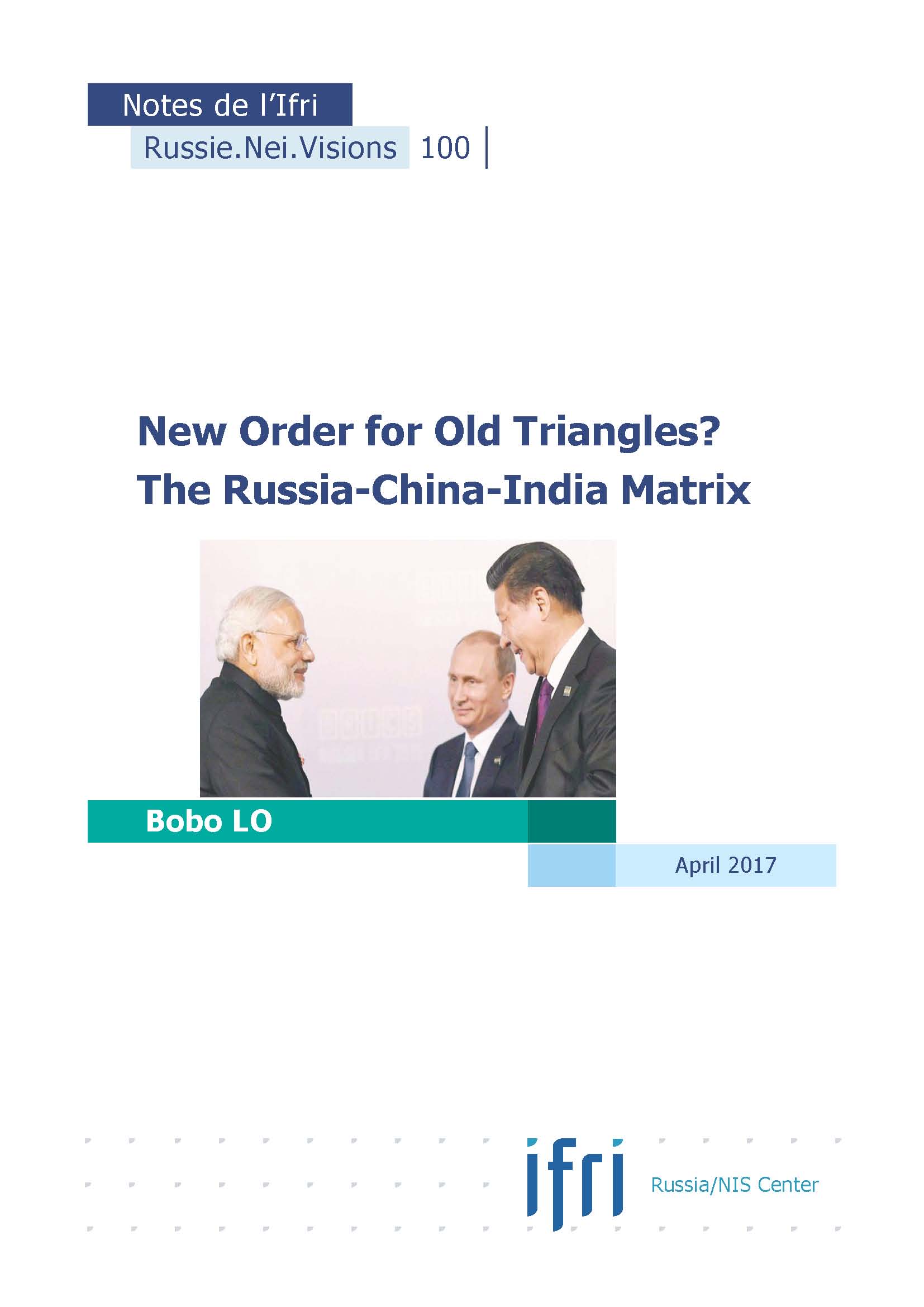New Order for Old Triangles? The Russia-China-India Matrix

As the US-led international system struggles under the strain of multiple challenges, the complex web of relations between Russia, China, and India will be critical to the formation of a new world order.
Yet the influence these great powers exert, on themselves and others, is uneven and difficult to predict. Alongside a public consensus on a “democratic world order”, there are significant differences of perspective and sometimes conflicting interests. It is far from clear whether the Russia-China-India matrix can form the basis of an emerging network of cooperation, or whether its contradictions foreshadow an increasingly problematic engagement.
Bobo Lo is an independent analyst. He was previously Director of the China and Russia Programmes at the Centre for European Reform; Head of the Russia and Eurasia Programme at Chatham House; and Deputy Head of Mission at the Australian Embassy in Moscow. He is an Associate Research Fellow with the Russia/NIS Center of the French Institute of International Relations (IFRI).
Download the full analysis
This page contains only a summary of our work. If you would like to have access to all the information from our research on the subject, you can download the full version in PDF format.
New Order for Old Triangles? The Russia-China-India Matrix
Related centers and programs
Discover our other research centers and programsFind out more
Discover all our analysesRussia, the Palestinians and Gaza: Adjustments after October 7th
The Soviet Union (USSR), and subsequently the Russian Federation as its internationally recognized legal successor, has consistently sought to play a visible role in efforts to resolve the Israeli-Palestinian conflict.
Deathonomics: The Social, Political, and Economic Costs of War in Russia
The report attempts to outline and examine a truly new phenomenon in Russian society, dubbed “deathonomics”—the making of a mercenary army against the backdrop of the Kremlin’s war in Ukraine, eventually replacing both the Soviet (conscript) and early new Russian (contract) armies. It notes that, by the end of 2023, this trend had turned the military service into one of the highest-paying professions in the country, something not seen in Russia on such a scale since the late 17th century.
Russia's Asia Strategy: Bolstering the Eagle's Eastern Wing
Among Russia’s strategic priorities, Asia traditionally played a secondary role compared to the West. In the mid-1990s, then Foreign Minister Yevgeny Primakov initiated a rapprochement with China and India. Then, in 2014, deteriorating relations between Russia and the West prompted Moscow to begin its “great pivot to the East”.
Kazakhstan After the Double Shock of 2022: Political, Economic and Military Consequences
The year 2022 represented a dual shock for Kazakhstan. In January, the country faced its most severe political crisis since independence, followed in February by Russia’s full-scale invasion of Ukraine, which cast uncertainty over the borders of post-Soviet states. These consecutive crises profoundly shaped Kazakhstan’s domestic and foreign policy.














